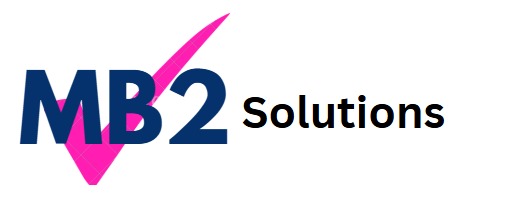
SAQA ID
119242

Credits
185
The purpose of this qualification is to prepare a learner to operate as a Robotic Process Automation (RPA) Developer. The Robotic Process Automation (RPA) Developer works with other developers and solution architects to develop robotic processing automation software to emulate the business process defined by the process owner and documented by the business analysts. They configure software RPA solutions to perform automated business processes that typically interact with multiple applications and data.
This qualification is made up of compulsory Knowledge, Practical Skills and Work Experience Modules:
1. Knowledge Modules
- Overview of Robotic Process Automation, Level 4, 2 Credits.
- Basic Calculations and Logical Thinking: Revision, Level 4, 4 Credits.
- Computers and Computing Systems, Level 4, 3 Credits.
- Computing Theory, Level 4, 4 Credits.
- Data, Databases and Data Scraping, Level 4, 4 Credits.
- Introduction to RPA for Automation of Processes, Level 5, 12 Credits.
- Robotic Process Automation (RPA), Level 5, 12 Credits.
- Introduction to RPA Governance, Legislation and Ethics, Level 4, 1 Credit.
- Fundamentals of Design Thinking and Innovation, Level 4, 1 Credit.
- 4IR and Future Skills, Level 4, 4 Credits.
Total number of credits for Knowledge Modules: 47
2. Practical Skill Modules
- Basic Calculations for Programming, Level 4, 8 Credits.
- Basic Programming, Level 4, 8 Credits.
- Access, Analyse and Visualise Structured Data using Spreadsheets and Scraping Tools, Level 5, 6 Credits.
- Model and Develop Robotic Automated Process (RPA) Solutions, Level 5, 14 Credits.
- Execute Test Procedures for Evaluating the RPA Solution Performance, Level 5, 10 Credits.
- Deploy RPA Solutions which Emulate Actions of a Human Interacting within Digital Systems, Level 5, 6 Credits.
- Modify and Improve Existing RPA Solutions, Level 5, 6 Credits.
- Function Ethically and Effectively as a Member of a Multidisciplinary Team, Level 4, 4 Credits.
- Apply Design Thinking Methodologies, Level 4, 4 Credits.
Total number of credits for Practical Skills Modules: 66
3. Work Experience Modules
- RPA Solution Design Interpretation and Development, Level 5, 28 Credits.
- RPA Solution Performance Testing, Level 5, 24 Credits.
- RPA Solution Deployment, Modification and Improvement, Level 5, 20 Credits
Total number of credits for Work Experience Modules: 72
The minimum entry requirement for this qualification is:
- NQF Level 4 qualification.

Pricing

Delivery Mode
Hybrid Full Time/Online

Campus Location
Dynamic
What will a qualified learner be able to do?
- Develop RPA solutions which emulate human actions during the project development stage using platform knowledge and data analysis capabilities.
- Execute test procedures for evaluating the performance of the RPA solution through test cases and decide whether it passes or fails.
- Modify and improve existing RPA solutions and build reusable components (post-production).
Exit Level Outcomes
- Analyse the Solution Design Document (SDD) for the RPA solution and prepare the Technical Design Document (TDD).
- Demonstrate an understanding of knowledge of RPA and application of best practices when developing resilient RPA solutions in accordance with the design documents.
- Execute test procedures (prior to deployment) for the RPA solution to determine performance.
- Apply technical expertise to resolve workflow incidents, maintain the deployed RPA solution, and implement changes ensuring continuous improvement.
- Demonstrate an ability to work as a member of a multidisciplinary team and function ethically and effectively in the workplace.
Integrated Assessment
The skills development provider will use the curriculum to guide them on the stipulated internal assessment criteria and weighting. They will also apply the scope of practical skills and applied knowledge as stipulated by the internal assessment criteria. This formative assessment together with work experience leads to entrance in the integrated external summative assessment.
The assessment will be conducted through written assessment and the evaluation of practical tasks at decentralised approved assessment sites by a panel of assessors evaluated by assessor(s) registered with the AQP.
Integrated Summative Assessment:
Quality Partner is required for the issuing of this qualification. The external integrated summative assessment will focus on the exit level outcomes and associated assessment criteria.
The external integrated summative assessment will be conducted through a theoretical assessment and the evaluation of practical tasks at decentralised approved assessment sites in a simulated environment and conducted by an assessor(s) registered with the relevant AQP

